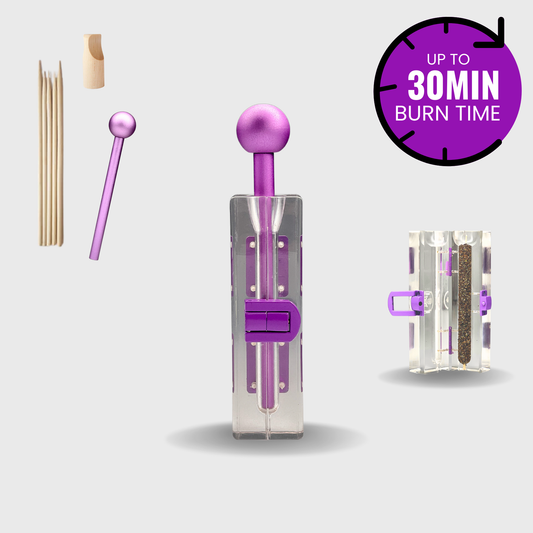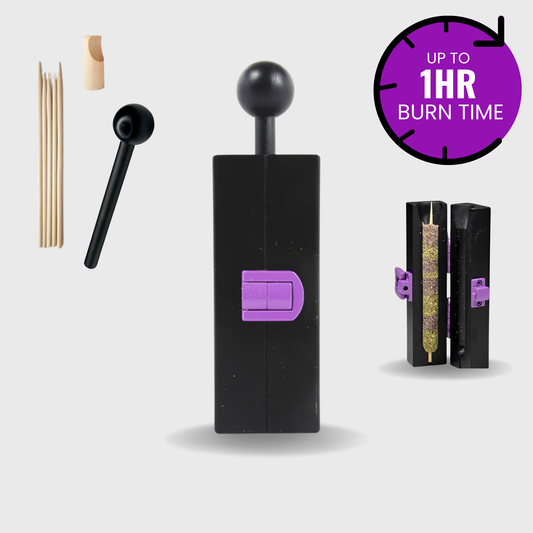⬇️ Prefer to listen instead? ⬇️
- THCA flower remains legal under the 2018 Farm Bill due to its non-intoxicating raw form, despite mimicking cannabis effects when smoked.
- Studies show up to 90% of hemp shop flower sales now consist of high-THCA strains.
- Unlike dispensary cannabis, THCA products often skip lab testing and safety regulations.
- Consumers in non-legal states are accessing near-cannabis experiences through THCA loopholes.
- THCA flower’s potency increases significantly when heated, with THC levels rivaling top-shelf dispensary strains.

THCA Flower: Legal Hemp or Cannabis Copycat?
“Looks like weed, smokes like weed—but is it really cannabis?” That’s the question sparking arguments in forums, dispensaries, and even state legislatures lately. THCA flower, a powerful yet technically legal strain sold in hemp shops, is catching fire across the U.S. As rolling culture levels up and access to psychoactive products expands, this hybrid of legality and potency is putting the cannabis vs hemp debate in the hot seat.

What Is THCA Flower Anyway?
THCA, or tetrahydrocannabinolic acid, is a cannabinoid naturally present in raw cannabis and hemp plants. On its own, THCA is non-psychoactive, meaning it won’t get you high if ingested raw or in unheated form. The real magic happens through a process called decarboxylation—the application of heat during smoking, vaping, or cooking—which transforms THCA into delta-9 THC, the primary psychoactive compound in cannabis.
This scientific process explains how a flower with high THCA content can be federally legal under hemp laws yet still offer effects on par with regulated marijuana. Under federal definitions, cannabis and hemp are differentiated based on delta-9 THC levels alone. Since raw THCA flower contains less than 0.3% delta-9 THC (yet may contain 20%+ THCA), it slides through the legal cracks.
Think of THCA as the “sleeper cell” of cannabinoids—innocent until activated. For enthusiasts looking to enjoy the traditional smoking experience without stepping outside the bounds of federal legality, THCA flower delivers the same aroma, appearance, and effects associated with cannabis.

The Legal Loophole: When Cannabis Becomes ‘Hemp’
Federal cannabis law draws a bright line between “hemp” and “marijuana” (cannabis), but that line is more theoretical than practical. The 2018 Farm Bill redefined hemp as any Cannabis sativa plant with less than 0.3% delta-9 THC by dry weight. The problem? It left out THCA from that equation.
Since THCA only becomes THC when heated, products can be harvested to contain high amounts of THCA—sometimes exceeding 25%—but still test under the 0.3% delta-9 THC requirement. Essentially, producers and vendors are exploiting a loophole: they’re marketing potent, intoxicating products that squeak by federal limits simply by being non-psychoactive before use.
This paradox leads to a strange reality: a product that walks, talks, looks, and smokes like weed is legally hemp—until it’s used. Once heated, the same flower activates to deliver highs comparable to those from state-legal marijuana.
To law enforcement and consumers alike, it creates immense confusion and legal ambiguity. But for now, this grey area makes THCA a go-to choice for people seeking the potency of pot without the restrictions.
Why Hemp Retailers Are All-in on THCA
Hemp-specific retailers have eagerly embraced THCA flower, and it’s not hard to see why. Unlike CBD, which offers therapeutic effects without a high, THCA—once decarboxylated—delivers noticeable psychoactive effects. That consumer appeal translates to strong sales: according to, THCA strains now make up 80 to 90% of flower sales in hemp shops.
For hemp retailers, THCA represents a lucrative product line that doesn’t require costly cannabis licenses or compliance with strict lab testing standards. For customers living in states without legalized cannabis, THCA flower offers a way to enjoy marijuana-like experiences without needing a medical card or breaking the law.
Some of the core reasons hemp retailers are prioritizing THCA include:
- High consumer demand for psychoactive effects
- Lower operating costs versus regulated dispensaries
- Access to broader markets, including states without legal weed
- Ability to market well-known strains under familiar names
THCA meets both regulatory compliance and customer expectation—at least for now. It's essentially the "plug-and-play" strain for retailers looking to maximize margins without ruffling too many legal feathers… yet.

Cannabis vs. Hemp: A Tale of Two Industries
The cannabis vs hemp rivalry reveals a growing economic and regulatory divide. On one side, state-licensed cannabis companies face massive barriers: compliance costs, taxation, state-specific regulations, lab testing requirements, and often limited market reach. On the other side, hemp businesses selling THCA operate with fewer rules, shipping coast to coast, tax-free, and without requiring adult-use licensing.
This disparity drives tension between the two sectors. Licensed cannabis producers feel undercut by hemp operations offering essentially the same psychoactive product with none of the red tape. As Robert Shade stated bluntly: “We’re not growing hemp—we’re growing weed that fits a legal loophole.”
The implications are bigger than just profits:
- Market erosion for compliant cannabis brands
- Loss of state tax revenue
- Consumer safety concerns due to unregulated products
- Pressure on lawmakers to update statutes
Increasingly, cannabis vs hemp has moved beyond botanical classification—it’s a full-blown regulatory debate over fairness, safety, and the future of the cannabis economy.

Consumer Confusion: Wait, Is This Weed or What?
Walk into most hemp shops and you’ll see something familiar: dense green nugs, terpene-rich aromas, and designer packaging labeled with names like "Wedding Cake" or "Runtz." It might as well be your local dispensary. The only difference? The product is sold as hemp, allowing for broader access and looser regulation.
For most consumers—especially those without a background in cannabis science—the difference between THCA flower and traditional weed is meaningless. It looks, smells, and smokes the same. Sellers intentionally blur the lines, marketing THCA as an alternative to dispensary weed without the legal and financial headaches.
This ambiguity causes problems:
- Users may not understand what they’re buying
- Mislabeling can influence dosage and expectations
- Some consumers unknowingly break local laws
As THCA flower becomes more widespread, efforts to improve transparency and education for the public are more urgent than ever.

Is It Safe? Regulation & Quality Concerns
One of the key issues facing THCA flower is the lack of standardized safety protocols. Because it falls under federal hemp laws and not state cannabis laws, most THCA products are not subject to mandatory:
- Lab testing for pesticides, molds, heavy metals
- Age verification at point of sale
- Security and tracking measures for traceability
This isn’t just red tape—it’s about public health. Consumers could be inhaling carcinogens or toxicants from inadequately treated flower. In contrast, licensed cannabis undergoes rigorous testing in every legal state before it hits the shelf.
The situation echoes the rise and backlash of Delta-8 THC, another psychoactive cannabinoid from hemp once sold freely in gas stations and head shops. Lack of regulation led to numerous health incidents and eventual crackdowns across several states and the FDA.
For THCA to scale sustainably within the hemp industry, safety protocols need to catch up to the science. Until then, buyers should look for third-party lab testing reports, transparent sourcing, and reputable suppliers.
What THCA Means for Smokers and Rollers
For the seasoned smoker, cannabis isn’t just about the buzz—it’s about craft. And THCA flower supports that shift toward connoisseur-style consumption. Due to its high THCA content, flower—once heated—can reach comparable or even higher THC levels than many dispensary-grade products.
Smokers report:
- Denser smoke and more robust effects
- Better rolling experience thanks to high-resin trichomes
- Longer-lasting highs, especially when used in group sessions
THCA strains are particularly well-suited to advanced rolling methods such as cannagars or infused wraps, where airflow, compression, and consistency are key.
In this context, THCA flower isn’t just a legal workaround—it’s a premium material for crafting exceptional smoking rituals.

Rolling Culture Meets a New Kind of Flower
As THCA gains mainstream traction, smokers are re-evaluating their rolling gear. The unique stickiness and density of THCA-rich flower demand tools that can handle its heavy terpene and resin content without clogging or rapid burning.
That’s where advanced molds like those from Purple Rose Supply come into play. These molds are designed with high-potency nugs in mind, ensuring good compression and airflow for longer, cleaner burns.
Benefits include:
- Extended smoke time
- Balanced airflow design
- Minimized waste of valuable terpenes and cannabinoids
With high-THCA flower reshaping the market, smokers want control and consistency—not just the quickest puff.

Cannagars & THCA: A Match Made in Smoke Heaven
Imagine taking one of the most potent hemp-derived flowers and rolling it into a tightly compressed cannagar that smokes for over an hour. This isn’t fantasy—it’s the newest frontier in rolling.
THCA flower works exceptionally well in cannagars, and here's why:
- Compression compatibility: The resin-rich structure helps the cannagar hold form
- Slow burn potential: Ideal for long sessions and social smoking
- Flavor preservation: Terpenes stay intact thanks to controlled heat and air design
Purple Rose Supply’s cannagar molds are crafted to enhance these features. They enable even novices to roll like pros, while helping advanced rollers embrace this potent flower without compromising on quality.
If you're smoking elite flower like THCA, improving your gear is more than just optional—it's essential.
State Reactions & Legal Pushback
It didn’t take long after THCA flower’s rise for regulators to take notice. Several states are moving to ban, restrict, or redefine how THCA products are sold, citing concerns similar to those sparked by Delta-8 THC.
Organizations like the National Cannabis Industry Association (NCIA) are lobbying for greater oversight, arguing that hemp-derived intoxicating products create unfair competition and public risk. They warn that allowing psychoactive flower to bypass regulations sends mixed signals and jeopardizes the gains made within legalized cannabis markets.
Key concerns cited include:
- Underage access due to lack of age restrictions
- Health risks from improperly tested products
- Evading local cannabis taxes, reducing state revenue
Laws are changing. Depending on where you are, THCA flower might be a celebrated hemp product or something banned like cannabis. Consumers should stay informed as laws keep changing.
Why Rolling Smarter Matters Now More Than Ever
As THCA flower redefines what looks and feels like legal weed, it also challenges smokers to level up their rolling rituals. With greater potency comes greater responsibility—to control dosage, airflow, and burn rate.
That’s where high-performance rolling tools, like those from Purple Rose Supply, come in. These aren’t your run-of-the-mill cones or bamboo wraps. They’re solutions for maximizing the full smoking experience—especially important when your flower is legally nuanced and chemically complex.
THCA is rewriting the rules. Your gear should keep pace.
Rolling Into the Grey Area
THCA flower isn’t just a product—it’s a phenomenon shaking the legal, cultural, and consumer cannabis world.
Whether you’re a seasoned toker or just finding your strain, its rise changes how we access high potency plants.
Rolling smarter, with premium tools made for this kind of flower, makes every session a better ritual. At Purple Rose Supply, we help make that experience better—supporting you through the changing situation involving legality, quality, and effects.




